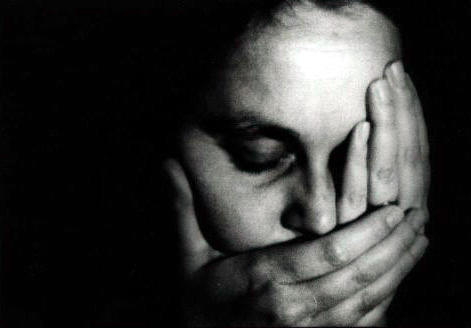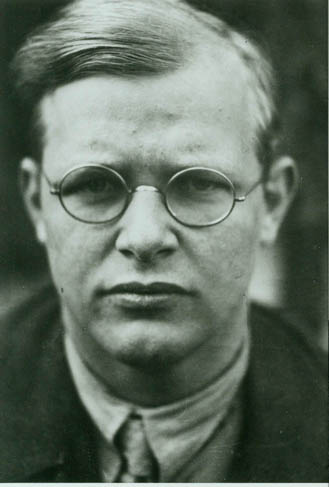
All suffering is painful to the body. All suffering is a challenge to the spirit. But the suffering that destroys a soul is the suffering that has no purpose, a suffering that has no point or goal. You can endure a whole lot of pain and distress is you know it’s not meaningless. What good is my pain accomplishing? What benefits are being achieved in my suffering?
“Endure hardship as discipline; God is treating you as sons and daughters. For what child is not disciplined by his father? If you are not disciplined (and everyone undergoes discipline), then you are illegitimate children and not true sons and daughters. Moreover, we have all had human fathers who disciplined us and we respected them for it. How much more should we submit to the Father of our spirits and live!” ~Hebrews 12:7-9
When a hospital patient is recovering from surgery and calls the nurse in the middle of the night and says, “This pain is killing me; why is this pain so bad?” the most reassuring truth the nurse can provide is to say, “The pain is a sign that healing is taking place.” This passage in Hebrews 12 is the preacher coming to the bedside of his hurting congregation to reassure them that the pain they feel is not a destructive anguish, but a healing one.
Now, I know discipline is a touchy subject. If it’s not done correctly, a child can grow up believing that authority belongs only to those who hit the hardest and hurt the most. We’ve seen too much of that and a lot of people now feel like it’s wrong to discipline children at all, especially in physical ways.
But at the same time, we’re very aware how dangerous it is for children who’ve never learned any limits, kids who’ve never been told “No” or been given any boundaries. Spoiled children or ignored children are a nuisance to everyone around them. In fact, we point to those kids when we’re disciplining our own kids: “We’re doing this because I don’t want you to grow up like that! We’re disciplining you so you won’t behave like that!”
We all agree that some kind of discipline, as an aspect of genuine love and concern, is vital. We see a kid growing up with no discipline and we think there’s something wrong with the parents. Or maybe the parent doesn’t really love the child enough to undertake the difficult work of discipline.
That’s the point in this part of Hebrews 12. If we are genuinely God’s children, then we should expect that God will treat us like a wise parent does, by bringing us up with appropriate discipline. “The Lord disciplines those he loves (12:6).”
Discipline is not just punishment. It’s not correction only. Discipline is also training, it’s conditioning. Giving your children chores like mowing the lawn or cleaning the bathroom mirrors isn’t punishment, it’s training for a certain kind of life. Making your kids save part of their allowance and count their blessings and use their manners isn’t punishment. But it’s still discipline, it’s conditioning them to live a certain way.
Whatever hardship you’re going through right now has meaning. It’s not random. It’s not arbitrary. And whatever pain you’re suffering, whatever trial you’re in the middle of right now, it doesn’t mean God has abandoned you or God’s mad at you or he’s stopped paying attention to you. Just the opposite! God is treating you as his beloved daughter. God is treating you like his genuine son. You belong to him. He loves you. He’s training you, conditioning you, bringing you up for a certain kind of life that looks like his.
“Endure hardship as discipline; God is treating you as his child.”
Whatever is causing our hardship — the devil, God himself, or just a result of living in a broken world — we do know that our Father uses that suffering for his good purposes in our lives. Whatever the cause, he’s ultimately the one who allows it, yes? Well, Hebrews tells us it’s a good idea to see your suffering as God’s instruction, his discipline, his training. The best possible thing you can do in a terrible situation is not ask what’s causing this, why did this happen? The best thing you can ask is, “What is God doing in the middle of this? What does God want to accomplish in me? What’s he trying to teach me? How am I supposed to grow? What part of me needs to be changed through this difficulty? How is this going to make me stronger? How can this struggle make me more like Christ?”
In my position as a congregational preacher, I have the occasional opportunity to visit with people who are going through terrible sufferings. And we’ll talk about the situation and we’ll visit about the problems. And then I’ll ask a couple of those questions. “What is God trying to do here? What’s God saying to you in the middle of this? Your marriage is breaking up, your finances are in ruin, you’ve been diagnosed with cancer. Where is God in all this? What’s he trying to grow in you?”
And I get a blank stare.
It’s never occurred to them to ask those kinds of questions. They’re so focused on what God is not doing, they never imagine he’s actually very involved.
It might come as a shock to you but, precisely because God loves us and treats us like his sons and daughters, he refuses to spoil us or ignore us, he refuses to let us get away with our sin and rebellion, and he refuses to let us wallow in mediocrity or stagnate into some kind of boring weariness. People say when God closes a door, he opens a window. Maybe. I think sometimes God closes a door because he wants us to kick it down! He’s training us. He’s conditioning us. He’s growing us.
In the middle of tough circumstances, a lot of people I talk to feel further away from God, not closer. They’re praying less, they’re not reading their Bibles, they stop coming to church. But the Lord disciplines those he loves. Pray more. Read the Scriptures more. Come to church more. Open your ears and your heart to the training of the Lord. He loves you.
Peace,
Allan








Recent Comments